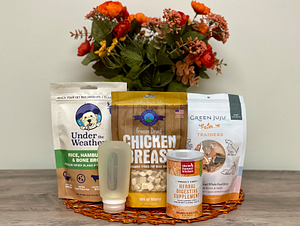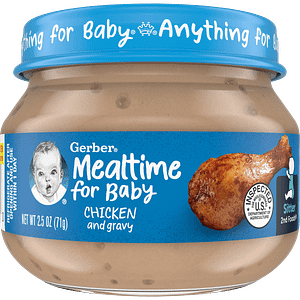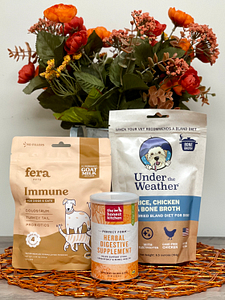
Just because your dog has a sensitive stomach does not mean training needs to come to a halt. With a little bit of creativity you can continue training your dog, even if they seem to have a sensitive stomach.
Preventing Upset Stomach from Training Treats
Feeding a large volume of treats may not end well even for dogs with iron stomachs. Cut training treats into tiny pieces – no larger than the size of a pea; even smaller for toy breeds and tiny puppies. Squeeze tubes like GoToobs allow you to dole out a teensy-tiny amount of high-value, lickable rewards like canned dog food or whipped cream cheese. You can go through an entire forty-five minute dog training class using just a couple tablespoons.
Start by using training treats that match the protein in your dog’s regular diet. Flip over your dog food bag and read the ingredient list – most commercial dog foods do include more than one protein, even if the front of the bag only lists one. Introduce novel proteins gradually, one at a time.
Introduce new treats slowly and in the comfort of your home, as opposed to suddenly feeding your dog two cups of something brand new at their very first dog training class. Going to a new, exciting place (like training class, daycare, or the vet) increases the likelihood of upset stomach. Layering unfamiliar food on top of that excitement is a recipe for a sad gut.
Treat Options for Dogs with Sensitive Stomachs
Does your dog’s kibble also come in a canned formula? Read the label and be sure the ingredient list on the can is a close match to your dog’s kibble. Many prescription veterinary diets also come in a canned formula. You can put canned dog food in a squeeze tube, like a GoToob, to easily reward your dog in training.
Single-ingredient muscle meat treats are another great option. You can purchase chicken breast, turkey breast, steak, or low-fat hamburger at the supermarket and boil it until it is completely cooked. Dry it thoroughly with paper towels and cut it into tiny cubes. Avoid dark meat and organ meat (liver, lung, kidney), which are richer and more likely to cause stomach upset for sensitive pups.
No time to cook? Freeze-dried chicken breast or turkey breast are available in our store. It will be more expensive than home cooking, but you can’t beat the convenience: freeze-dried treats are shelf stable for years.

Ingredients: chicken or beef, water, & cornstarch. That’s it! (Photo credit: Gerber)
Another store-bought option is single-ingredient meat baby food. Gerber makes little glass jars of chicken, turkey, and beef baby food. Most dogs adore the taste and consistency. Baby food can be put in a squeeze tube, or place the jar in your treat pouch and have your dog lick a tiny dab off your finger. (Baby food is also a great option for enrichment toys like lick mats!)
We recommend picking one protein and sticking with it during the duration of your dog’s recovery. Select a protein that is already present in your dog’s current diet. For example, if your dog eats turkey and rice dog food and generally tolerates it well, use boiled turkey as training treats. This reduces the likelihood of upsetting your dog’s stomach.
What to Avoid
Dogs with sensitive stomachs should avoid flavor enhancers like sugar (including molasses and honey) and liquid smoke. Other common triggers include preservatives in dog food and dog treats such as carrageenan and glycerin, and high-fiber ingredients like beet pulp and pumpkin. (Fiber is great in reasonable amounts, and nearly guaranteed to cause diarrhea in large quantities.)
We recommend that treats for dogs with sensitive stomachs have the shortest ingredient list possible. Most commercial “dog training treats” often have a bunch of ingredients, including flavor enhancers like sugar or liquid smoke. These are fine for the vast majority of dogs but should be avoided for dogs prone to stomach upset.
If your dog has ever had a bout of pancreatitis, avoid high-fat treats like peanut butter, cheese, and marrow bones.
Supplements for Sensitive Stomach Support

We’ve also had great success with The Honest Kitchen’s Perfect Form supplement. This is a human-grade herbal blend containing slippery elm which helps to soothe bellies. It’s helpful no matter the cause of a dog’s upset stomach: too many treats, environmental stress, switching to a new diet, even allergies.
Under the Weather freeze-dried bland diets are fantastic to have in your pantry in a pinch. If your dog has an upset stomach, just rehydrate the food by mixing it with hot water. I always keep a bag in my house and even take it with me when I travel with my dogs so I’m prepared.
In Conclusion
After several weeks of solid stool, we recommend “expanding your dog’s horizons” by gradually re-introducing other proteins, organ meat, and treats with complex ingredients. In our experience, dogs that regularly eat a varied diet are less likely to develop stomach upset even after a “dietary indiscretion” like getting into the trash or scarfing down something from the sidewalk.
This blog post is provided for educational and informational purposes only. It does not constitute providing veterinary advice or professional services. Consult a veterinarian for medical advice, diagnoses, or treatment.
